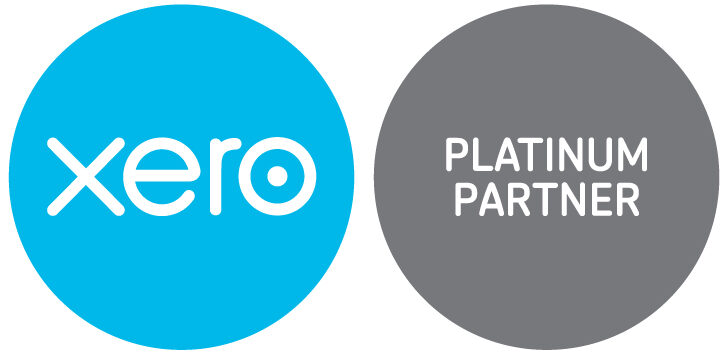HMRC announced the extension to the SEISS in July. If you were eligible for the first grant and can confirm to HMRC that your business has been adversely affected by Coronavirus on or after 14 July 2020, you’ll be able to make a claim for a second and final grant from 17 August 2020.
The grant payable is the lower of:
- £6,570 and
- 70% of your average monthly profits over the three years 2016/17, 2017/18 and 2018/19.
The grant is available to self-employed individuals:
- With trading profits up to £50,000 per year the majority of whose income comes from being self-employed.
- Who have been adversely affected by the Coronavirus crisis.
If you receive the grant you can continue to work or take on other employment including voluntary work.
You can make a claim for the second and final grant if you’re eligible, even if you did not make a claim for the first grant. The claim process is the same as for the first grant but by way of reminder you will need the following information:
- Self-Assessment Unique Taxpayer Reference (UTR)
- National Insurance number
- Government Gateway user ID and password – if you do not have a user ID, you can create one when you make your claim
- UK bank details (only provide bank account details where a Bacs payment can be accepted) including:
– bank account number
– sort code
– name on the account
– your address linked to your bank account.
If you are eligible to make a claim HMRC will contact you to confirm. The online service to make a claim will commence on 17th August 2020.
The Job Retention Bonus
HMRC recently announced that Employers will be able to claim a one-off payment of £1,000 for every employee they have previously received a grant for under the Coronavirus Job Retention Scheme (CJRS) who remains continuously employed through to the end of January 2021.
To be eligible, the employee must have received earnings in November 2020, December 2020 and January 2021, and must have been paid an average of at least £520 per month, and a total of at least £1,560 across the three months.
As the employer, you will be able to claim the bonus after you have filed PAYE information for January 2021. The bonus will be paid from February 2021. More detailed guidance, including how employers can claim the bonus online will be available by the end of September.
If you intend to claim the Job Retention Bonus, you must:
- ensure all employee records are up to date
- accurately report employees’ details and wages on the Full Payment Submission (FPS) through the Real Time Information (RTI) reporting system
- make sure all of your CJRS claims have been accurately submitted and you have told HMRC about any changes needed (for example if you’ve received too much or too little).
Potential Penalties – 90 days to notify HMRC of over claimed COVID grants
Finance Act 2020 has now received Royal Assent, confirming the taxability of the Coronavirus Job Retention Scheme (“CJRS”), the Self-employment Income Support Scheme “SEISS”, Coronavirus Statutory Sick Pay Rebate Scheme and coronavirus business support grants.
It also provides HMRC with powers to recover any grant payments to which the recipient is not entitled, as well as the ability to charge penalties.
Guidance has been published detailing how to repay any over claimed grant. The Finance Act has confirmed that the onus is on the taxpayer to notify HMRC if they have over claimed a CJRS or SEISS grant and this must be done within 90 days of Royal Assent (so by 20 October 2020) or 90 days of receipt of the grant, whichever is the later.
For payments made under CJRS, where the recipient ceases to be entitled to retain the payment then the notification deadline is the later of 90 days after ceasing to be entitled to the monies or the two dates mentioned above.
The penalty regime is based on HMRC’s ‘failure-to-notify’ penalties with an additional provision that if the taxpayer knew that they were not entitled to the grant at the time when they received it (or ceased to be able to retain it), the overpayment must be notified or repayment made in full by the end of the notification period. Any failure arising from this additional provision will be treated as deliberate and concealed. Penalties could be as much as the amount over claimed.
We would therefore recommend that anyone that has claimed grants check that they were entitled to the amount they received.
As a reminder, for SEISS grants the key risks affecting entitlement are:
- The trade was not actually adversely affected by coronavirus;
- The trade did not continue in the tax year 2019/20 e.g. because the business was incorporated; or
- There was no intention to continue to trade in 2020/21.
The key risks affecting entitlement to the CJRS grants are:
- Grants are not used for the purpose for which they are intended i.e. to cover employee remuneration;
- Calculation errors; or
- Employees working during periods that they are on furlough.
Grants Available for the Customs Intermediary Sector
The next phase of the customs grant scheme is now open for applications. The Government have announced a £50 million investment as part of the measures to accelerate growth of the customs intermediary sector and help meet the increased demand it will see from traders at the end of the BREXIT transition period.
Customs intermediaries – including customs brokers, freight forwarders and express parcel operators – as well as traders who complete their own declarations, are among those who can apply for grant funding to support with recruitment, training and IT to handle customs declarations.
The grant can cover salary costs for new or redeployed staff, up to a limit of £12,000 per person and £3,000 for recruitment costs for new employees. This will help to recruit new staff and train them up ahead of July 2021, when all traders moving goods will have to make declarations.
The grant scheme will continue to offer financial support for training costs to upskill staff and for IT that will allow greater efficiency. The grant for IT will cover expenses for increasing capacity or productivity for customs declarations, customs software, set-up costs, and related hardware.
Grants will be issued on a first come, first served basis. Applications will close on 30 June 2021, or earlier if all funding is allocated. More information on the scheme and how to apply can be found by following the attached link on GOV.UK.
Other Assistance
We would also remind you that Bounce Back Loans, CBILs, CLBILs and Future Funding assistance remain available and as businesses begin to reopen the need to access this assistance may become apparent.
If you require any additional information on any of the above please do not hesitate to contact your usual RPG contact.







 Production
Production